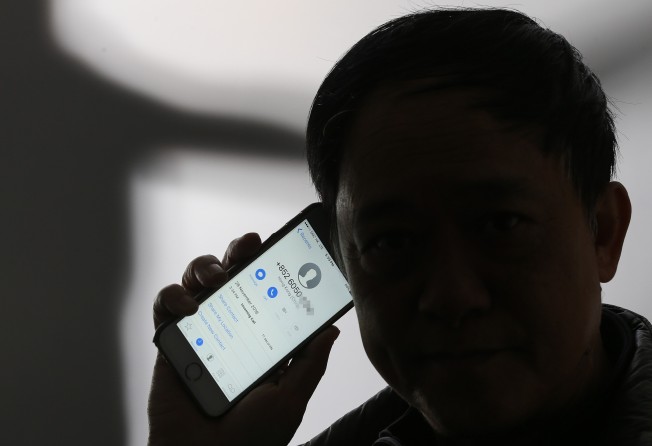
Police launch free online antivirus tools for smart devices as Hong Kong faces surge in hacking threats
Authorities battle rise in cyberattacks involving email fraud and malicious apps, with HK$852 million in total losses in first half of year

Hong Kong users can now scan and remove viruses on their smart devices using free online tools under a joint campaign between police and cybersecurity companies.
The initiative came as authorities seek to stem a surge of nearly 90 per cent in financial losses from hacking cases – victims were conned out of HK$852 million (US$108.5 million) in the first half of the year.
Between January and June, police recorded 527 cases of computer system intrusions, including on smart devices, compared with 389 cases in the same period in 2017, totalling HK$452 million in losses.

According to sources, 90 per cent of cases resulting in financial loss this year also involved international email scammers, who first hacked into user accounts to understand the business transactions between the victims and clients. They then used fictitious emails to induce their targets into making remittances to local or overseas bank accounts.
The force’s Cyber Security and Technology Crime Bureau first launched the campaign in June 2017 and provided antivirus tools to computer users on its website. The bureau said people had used the tools to remove more than 435,000 botnet-related pieces of software on their computers.
A botnet is a collection of devices connected to the internet which are infected with malicious programmes and can be controlled as a whole without user knowledge.
The bureau then extended the campaign to smart devices amid looming hacking threats – experts estimated that about 1.1 million smart devices in Hong Kong were hacked last year.
You lock the door when you leave home, some even install CCTV. How about your computers and smart devices?
“You lock the door when you leave home, some even install CCTV. How about your computers and smart devices? We need to raise such security awareness,” said Frank Law Yuet-wing, a senior superintendent from the bureau.
Another officer, Superintendent Alice Tsang Nga-sze, advised users not to install applications from untrustworthy sources, or click on suspicious hyperlinks and dubious emails, as hackers could encrypt the smart devices by ransomware and control the devices to launch cyberattacks.
Hackers can get access to users’ personal data, including contacts, messages and bank account information for illegal use.
“Users should also be alert to what authorisations they have given to an application. It is understandable that a map application needs to use your location. But does a game application need your location too?” Tsang said.

She warned particularly of a form of cyberattack which hacks into a router and sends out bogus messages to lure users into downloading a malware, after which hackers use it to steal personal data from devices. Such attacks started in Europe and spread to Asia, Tsang said.
She also urged users to seek help from IT professionals if their devices appeared to have unusually fast battery consumption, become heated, or display unknown applications or transactions, as these might be signs of hacking activity.
Figures from the Census and Statistics Department showed there were more than 5.68 million users – aged 10 or above – with smart devices in Hong Kong last year. Half of the elderly aged 65 or above also owned a smartphone.